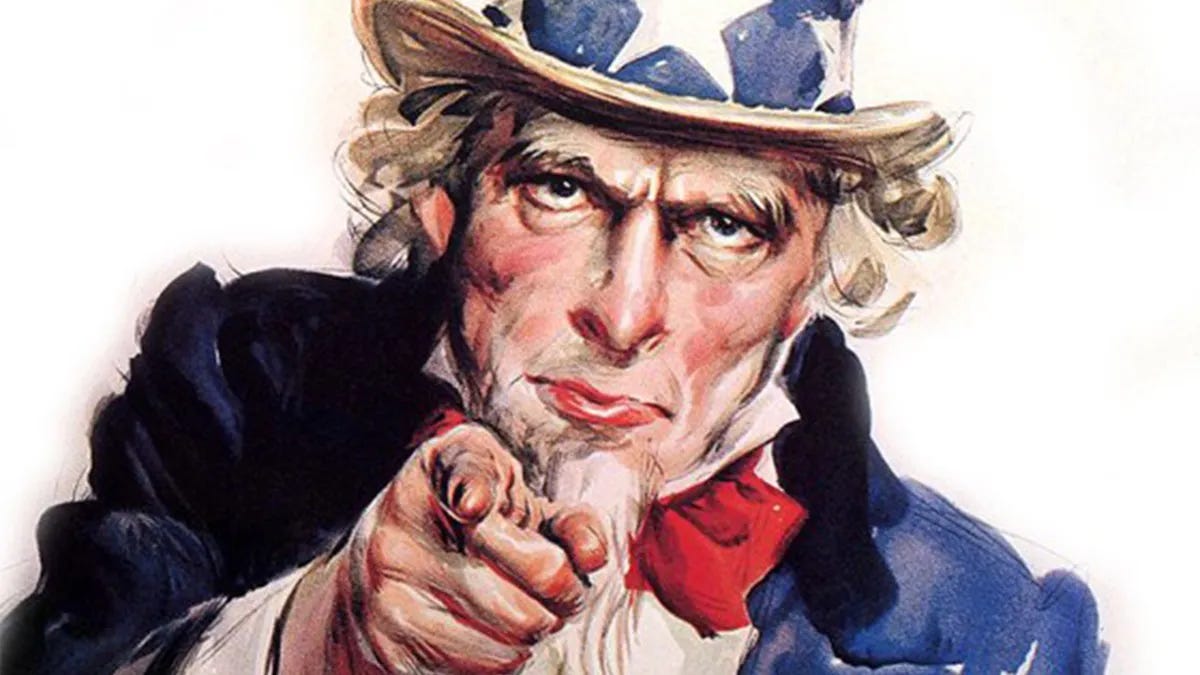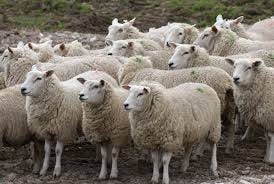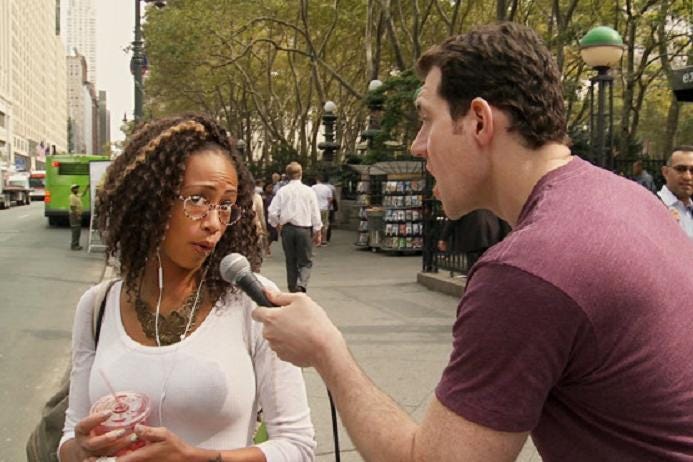Is Voting a “Patriotic Duty?”
The big election is still over a year away, but candidates, especially for the esteemed office of President, are throwing their proverbial hats into the proverbial ring. Battle lines are being drawn. And the news media, the pundits, the talking heads and the talking hosts will be saying that we all have "patriotic duty" to get out and vote!
Do we? To explore the question, first consider this fictional conversation between two guys we’ll call Bill and Fred:
Bill: "Who are you guys voting for?"
Fred: "We are all voting for (name of candidate)!"
Bill: "Well then, I will vote for him/her also!"
When you open up the polling booth to anybody with a pulse who can somehow stagger their way in, you are going to get voters who make their selection based on all the wrong reasons. The above conversation illustrates what I call the sheep mentality - one really lousy way to select political leaders.
Voting was not always as open and democratic as it is today. In the early days of the American Republic, only white males could vote. And one had to own property (the exact requirements varying by state). You could argue that such a qualification had merit because those with property had “some skin in the game”. Under such a requirement, government-run wealth redistribution and social safety net programs would never stand a chance. Also, there were poll taxes. The argument can be made that voting was a privilege, and a logical revenue source were the voters themselves. Most of these voting obstacles were abolished via the 15th, 19th, 24th, and 26th Amendments.
Furthermore, in the beginning, the President was not to be elected by anything remotely resembling a popular vote. Nobody “ran” for President. The logic behind the Electoral College is explained here by Dr. Randall Calvert from Washington University:
At the framing, the more important consideration was that electors, expected to be more knowledgeable and responsible, would actually do the choosing.
Governing is a complicated business. Some go to college for years to get a degree in Political Science or Law. Even those of use without such a degree can spend a lifetime studying and observing politics in action. I, personally, have spent (too) many decades reading and contemplating questions like: what exactly is the purpose of government? What defines good governance or good leadership, versus poor governance or leadership? There are lots of answers to these questions, and very intelligent people can and do disagree.
But the key word in the above statement is "intelligent". I cringe when I hear reporters questioning the person-on-the-street on political issues, or who will get their vote for President, and they respond with something like: “Well, if the economy improves, I’ll vote for the current guy, but if not, then I’ll for the other guy!”
Regarding the economy, here are the facts: the sitting President, in no way, shape, or form, runs the economy single-handedly. He is but a third of the Federal government. And that doesn’t include the significant impact of state and local governments. You also have foreign governments; the whole world IS inter-connected, you know. Aside from governmental influence, you have the efforts of zillions of workers, entrepreneurs, capitalists, volunteers, innovators, consumers, investors, and more. And let’s not forget acts of nature (hurricanes, earthquakes, etc.) and the bad guys (criminals, terrorists, etc.) which certainly affect the economy. And even if the President had that much power, the results might not be instantaneous; it can take years, or decades, for governmental policy to bear fruit.
A million factors - beyond the control of the President - affect the economy. He does not have one button on his desk to make it better and another button to make it worse. The above quote from Dr. Calvert is making more sense every minute.
Then there is the candidate’s popularity, a major factor for many voters. The proverbial conversation above exemplifies this phenomena. Popularity does NOT equal good leadership or good problem-solving skills. Sad to say, but running for political office is really more about marketing than it is governance and wisdom. Candidates that are popular are that way because they have lots of money, or good name recognition, or great marketing. Donald Trump won the 2016 Presidential election largely because his TV show The Apprentice was a big hit among viewers. But a candidate with little money, no name recognition, and less than state-of-the-art marketing can still be an excellent statesman.
The two-party oligopoly here in the USA only aggravates the problem. There are other political parties out there with great candidates and great ideas that ought to at least get a public airing. Most voters will probably never even hearabout the minor-party candidates running for office up and down the ballot. Why? Because their poll numbers are too low. Why are their numbers low? Because the news media never mentions them. Am I the only one who sees the Catch-22 circular logic here?!?!?
Some kind of voter literacy test is not a bad idea. I'm not talking about anything complex here; just a few simple questions about issues, parties, and candidates. Obviously, people who cannot even read will probably not make the cut. But that's Ok; reading is THE best way to boost one's knowledge about the world and what's going on. Watching TV is probably the worst.
Many important issues face our nation. What should the government do, or not do, about: poverty, immigration, terrorism, crime, unemployment, inflation, pollution, global warming, foreign threats, free trade, drug abuse, prison overcrowding, health care, abortion, mass shootings, LGBTQ rights, traffic congestion, and on and on and on. A responsible voter should, at the minimum, have given some thought to these and other issues. Preferably a lot of thought.
There is absolutely no relationship between more votes and better election outcome. Sorry, but, everyone does not have an patriotic obligation to vote. If anything, everyone has a duty to be informed, to be politically astute. It would be far better if the uninformed, the lazy, and the apathetic just stay home.
----------------
Personal note: I will be taking a couple of weeks off for travel starting in mid-June. More liberty-themed articles will appear when I return.








